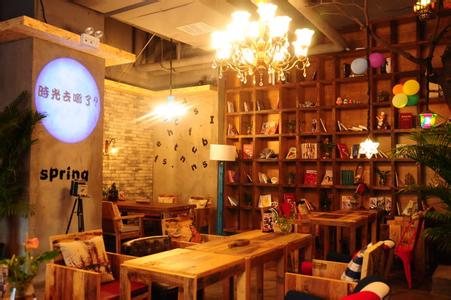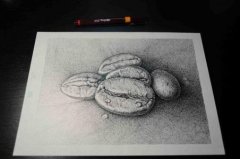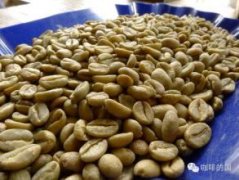A brief introduction to the planting market price of sweet and smooth bourbon boutique coffee beans

Bourbon is almost all round beans, beans are a little smaller than tin card, ripening later, but the yield is 30% more than tin card. It is suitable for growing above 1200 meters above sea level, and its flavor is obviously more prominent than those below 1000 meters, but bourbon has a disadvantage that it will rest for a year as a result. Round bourbon is full of vitality, and its resistance to rust leaf disease is better than that of iron pickup, but its flavor is as good as it, or even better.
In 1810, some of the round beans in Bourbon Island mutated into pointed beans, which is known as the "pointed bourbon". It is characterized by a caffeine content of only half, low output, weak physique, and extremely rare, just like a weak aristocratic teenager.
In addition, the biggest thing that iron pickup and bourbon have in common is that they both need the protection of shade trees. if there is no shade tree to help it block the sun, it is not only not conducive to its growth, but also greatly reduces the flavor of coffee beans.
Gene mutant
The variants of the Bourbon family
Yellow bourbon
"Bourbon Amarello" yellow bourbon is a unique yellow-skinned bourbon variety in the Brazilian state of Sao Paulo. Coffee fruits usually turn red when ripe, but yellow bourbon does not turn red when ripe, so it is named after orange. Huang Boban became Deep-Fried Chicken of the boutique coffee industry because he almost won the top three prizes in "CoE" (Chinese name: extraordinary Cup).
Taste characteristics: sweet and smooth fruit sweetness, obvious nutty flavor, balanced and supple acidity, weak and clean bitterness, rich chocolate aroma and nutty flavor, bright and fresh taste.
Kaddura
"Caturra" is a single gene variant of bourbon discovered in Brazil in the 1950s. It has better yield and disease resistance than bourbon, and the tree is shorter and easy to harvest. Unfortunately, it has the same problem as bourbon-- as a result, it has a year off, and the flavor is equal to or slightly worse than bourbon beans.
But it is more adaptable, can be planted with high density, does not need shade trees, and can be vibrant in direct exposure to the sun, so it is also called "exposed coffee" (Sun Coffee).
Kaddura is suitable for high altitude areas from 700m to 1700 m, but the higher the altitude is, the better the flavor is, and the bean yield is relatively reduced. There are also variants of yellow Kaddura in Central and South America, but the wind rating is not as good as Huang bourbon.
Pacas
"Pacas" in 1935, El Salvador coffee farmer "Don Alberto Pacas" selected high-production San Ramon bourbon varieties and moved them to the farm for planting. In 1956, his coffee tree produced more fruit than the same kind of coffee trees. University of Florida professor "Dr. William Cogwill" identified this as a genetic mutation in bourbon and named it "Pacas".
Pacas, with its high output and good quality, is popular in Central America. Currently, 68% of El Salvador is bourbon, while Pacas has 29%.
Among the many varieties of coffee in Brazil, yellow bourbon is one of the most outstanding varieties. Generally speaking, yellow bourbon changes from green to yellow to red, but the appearance of yellow bourbon only stays in yellow. The yellow bourbon, which grows at high altitude and is sun-treated, has an excellent flavor.
Bourbon coffee (French: Caf é Bourbon) is a kind of coffee produced by growing coffee trees in bourbon cultivation of Arabica coffee. Bourbon coffee was originally grown in Reunion, which was also known as le Bourbon Island before 1789. Later occupied by France to connect with the African continent and Latin America, it is now one of the two most popular producers of Arabica coffee in the world. Bourbon coffee is usually produced between 3500 and 6500 feet above sea level.
Bourbon species, native to Bourbon Island in the Indian Ocean (now known as Reunion Island), is the second species caused by the Typica mutation. It belongs to the oldest existing coffee variety. The green fruit appears bright red when ripe, while the yellow bourbon species is derived from the cross between bourbon species and other varieties. Because of its low yield and relatively intolerant to wind and rain, it has not been widely planted. However, when planted in high altitude areas, it will have excellent flavor performance, which is more common in recent years.
Yellow Bourbon, Huang bourbon, the mature consequence is actually yellow, was first found in Brazil, and now mainly grows in Brazil. It is generally believed that it may have been mutated by a cross between a bourbon with red fruit and a variety of iron pickup with yellow fruit called "Amerelo de Botocatu".
Kenya
"SL28" and "SL24" is a bourbon line screened and cultivated by French and British missionaries and researchers in Kenya at the beginning of the 20th century. For a hundred years, it has adapted to the high concentration of phosphate soil in Kenya, and the Kenyan bean has a special sour aura, which is different from the bourbon bean in Central and South America. However, after it was transplanted to Asia, it lost its flavor and could not show their characteristics.
"Bourbon" bourbon is an ancient and excellent variety juxtaposed with iron pickup, and some botanists believe that bourbon is an early variety of iron pickup after it was transplanted to Yemen.
Important Notice :
前街咖啡 FrontStreet Coffee has moved to new addredd:
FrontStreet Coffee Address: 315,Donghua East Road,GuangZhou
Tel:020 38364473
- Prev

A brief introduction to the history and culture of the origin and development of low-alcohol bourbon boutique coffee beans
Bourbon Amarello bourbon, a variety of the bourbon family, is a yellow-skinned bourbon variety unique to the Brazilian state of Sao Paulo. Coffee fruits usually turn red when ripe, but yellow bourbon does not turn red when ripe, so it is named after orange. Huang Bourbon almost won the top three prizes in CoE (Cup of Excellence, Chinese name: extraordinary Cup).
- Next

A brief introduction to the cultivation of extremely rare bourbon boutique coffee beans, geographical location, climate and altitude
Kenya SL28SL24 was screened by French and British missionaries and researchers in Kenya at the beginning of the 20th century.
Related
- Detailed explanation of Jadeite planting Land in Panamanian Jadeite Manor introduction to the grading system of Jadeite competitive bidding, Red bid, Green bid and Rose Summer
- Story of Coffee planting in Brenka region of Costa Rica Stonehenge Manor anaerobic heavy honey treatment of flavor mouth
- What's on the barrel of Blue Mountain Coffee beans?
- Can American coffee also pull flowers? How to use hot American style to pull out a good-looking pattern?
- Can you make a cold extract with coffee beans? What is the right proportion for cold-extracted coffee formula?
- Indonesian PWN Gold Mandrine Coffee Origin Features Flavor How to Chong? Mandolin coffee is American.
- A brief introduction to the flavor characteristics of Brazilian yellow bourbon coffee beans
- What is the effect of different water quality on the flavor of cold-extracted coffee? What kind of water is best for brewing coffee?
- Why do you think of Rose Summer whenever you mention Panamanian coffee?
- Introduction to the characteristics of authentic blue mountain coffee bean producing areas? What is the CIB Coffee Authority in Jamaica?

